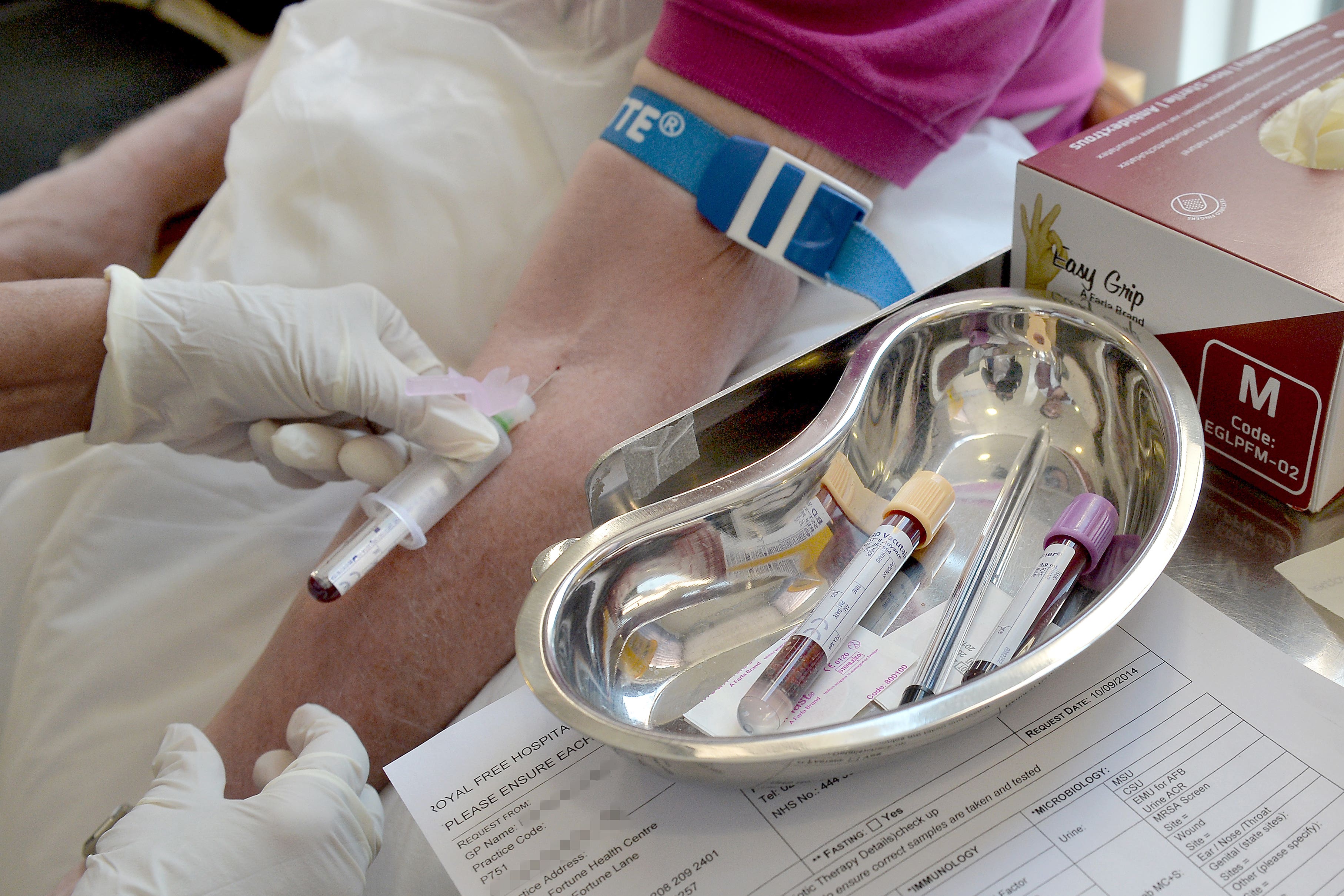Some NHS patients have been wrongly diagnosed with type 2 diabetes after blood tests provided inaccurate results.
At least 55,000 blood tests must be re-run following errors by machines used to test for the disease.
The inaccurate results were made by machines made by US and Ireland-based company Trinity Biotech, and as a result of the misdiagnoses some patients have also been prescribed medicines they do not need.
The issue first came to light last year, when the Bedfordshire NHS Foundation Trust said some patients may have wrongly received higher blood glucose readings from a laboratory at the Luton and Dunstable Hospital.
At the time, the trust suggested some patients could have been misdiagnosed with type 2 diabetes as a result, and apologised "for any emotional distress and inconvenience".
But now NHS England has confirmed 16 hospital trusts use the same machines, with thousands of patients affected who may require new blood tests to receive an accurate blood glucose reading.

The procedure, known as the haemoglobin A1C test, measures average blood sugar levels. This is used to diagnose type 2 diabetes and also to monitor the condition.
Concerns about the accuracy of the tests on these machines were first reported in April 2024, according to the medicines and healthcare regulator (MHRA).
NHS diabetes national clinical director Dr Clare Hambling said: “Being potentially misdiagnosed with any long-term condition, such as type 2 diabetes, is understandably worrying, however the clinical risk of harm to patients following this issue is low.
“Less than 10 per cent of NHS laboratories were affected and all have either replaced the machines or addressed calibration issues following MHRA advice in July – and anyone requiring a repeat test will be contacted by their GP or local hospital.”
According to the BBC, Trinity Biotech has said it is working closely with the UK health regulator and has contacted all hospitals which use the machines.
"The company has worked closely with the MHRA to resolve the issues experienced by some UK labs using the system," the firm said.
The Independent has contacted Trinity Biotech for further comment.







